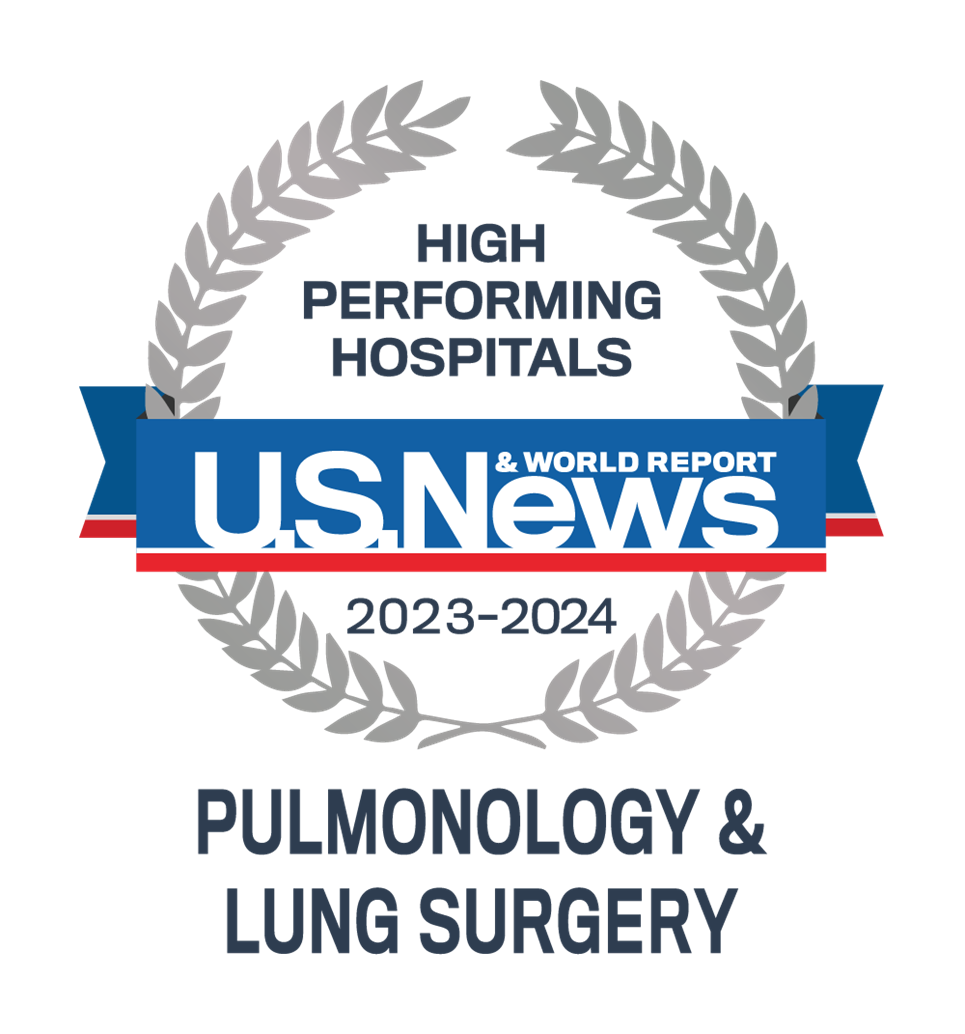Types of Interstitial Lung Disease
Interstitial lung disease (ILD) is a group of diverse pulmonary conditions that cause progressive inflammation and scarring (fibrosis) in the lungs. There are hundreds of distinct types of ILD, but the most common is idiopathic pulmonary fibrosis, which occurs for no known reason.
ILD is complex and requires specialized care. For this reason, many patients turn to Tampa General Hospital’s Advanced Lung Disease and Transplant Center within the Transplant Institute, which features a highly focused, multidisciplinary team of medical professionals. In recognition of our outstanding care, extensive research and community education initiatives, the Pulmonary Fibrosis Foundation (PFF) has awarded us the prestigious designation of PFF Care Center.
What Causes Interstitial Lung Disease?
All types of interstitial lung disease are caused by an abnormal healing response, which produces excess scar tissue in the lungs. As the body’s natural repair process goes awry, the lung’s air sacs (alveoli) begin to stiffen, causing breathing difficulty and slowing the flow of oxygen from the lungs to the bloodstream.
Some frequently diagnosed types of interstitial lung disease and their associated causes include:
- Asbestosis – caused by exposure to asbestos
- Hypersensitivity pneumonitis – caused by inhalation of environmental antigens, such as dust, fungus or mold
- Interstitial pneumonia – caused by a bacterial, viral or fungal infection in the body’s connective tissues (interstitium)
- Nonspecific interstitial pneumonitis – related to an autoimmune condition, such as rheumatoid arthritis or scleroderma
- Sarcoidosis - characterized by the development of patches of inflammatory cells (granulomas) in the lungs
What Are the Symptoms of Interstitial Lung Disease?
The main symptom of ILD is shortness of breath, which may be mild at first and only occur during exercise. Usually, the breathing difficulties worsen over time and may start to become apparent during nonstrenuous activities, such as bathing, dressing, eating and talking.
As the lung damage progresses, ILD may also cause:
- A dry cough
- Joint and muscle pain
- Fatigue
- Weight loss
- Curvature and enlargement of the fingernails (clubbing)
- Blue-tinged lips, skin and fingernails (cyanosis)
How Is Interstitial Lung Disease Diagnosed?
Because there are many different types of interstitial lung disease, the diagnostic process is often complex. Typically, a physician will perform a physical examination and order various tests, such as:
- Bloodwork
- A chest X-ray
- A CT scan
- A lung biopsy
- Pulse oximetry (to measure the oxygen saturation in the blood)
- Spirometry (to measure the amount and speed of air inhaled and exhaled)
At TGH, each case is thoroughly reviewed by our multidisciplinary team to ensure all appropriate diagnostic tests are performed. Our thorough approach helps to ensure an evidence-based diagnosis and a personalized treatment plan.
How Is Interstitial Lung Disease Treated?
The various types of interstitial lung disease are treated differently, but the goals are the same: to relieve the symptoms, reduce the lung inflammation, address the underlying cause of the scarring and slow the progression of the lung damage. The physicians in TGH’s Advanced Lung Disease and Transplant Center are knowledgeable about the many nuances of ILD that can influence its treatment. We offer the latest options, including medications, pulmonary rehabilitation, supplemental oxygen, corticosteroid therapy and transplant surgery, as well as groundbreaking clinical trials.
Benefit From World-Class Pulmonary & Lung Care at TGH
A respected leader in the treatment of all types of interstitial lung disease, TGH is ranked as One of the Nation’s Best Hospitals for Pulmonology & Lung Surgery by U.S. News & World Report for 2023-24. To request an appointment with a specialist in our Advanced Lung Disease and Transplant Center, contact us at 800-505-7769.

